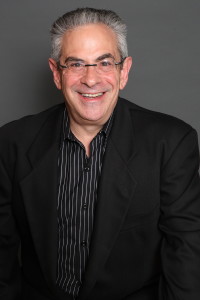LOS ANGELES TIMES
In one corner, there’s Michael Chow — Mr. Chow, himself. In the other, there’s Philippe Chow, an ex-employee with his own upscale Chinese restaurants. The turf war has landed in court.
By Betty Hallock
July 15, 2009
There is Michael Chow, the designer and art collector from Shanghai by way of London who founded the chain of famous Mr. Chow restaurants in 1968. And there is Philippe Chow, who worked for Mr. Chow for more than 25 years before starting his own chain of Philippe restaurants in 2005.
Last week, Mr. Chow sued Philippe in federal district court in Miami, where a Mr. Chow outpost is set to open within wonton-throwing distance of a Philippe restaurant. The lawsuit claims Philippe Chow — who changed his name from Chak Yam Chau — used the Chow name to profit from “the trademark rights of the Mr. Chow restaurants and the real Mr. Chow.”

Written as aggrandizing drama, the suit contends that Philippe Chow “was directly privy to the treasure chest of details, know-how, skills and techniques which he and [his partner Stratis] Morfogen misappropriated in an attempt to unfairly imitate the Mr. Chow experience.”
It claims that Philippe Chow “was a chopping assistant, a chopper, an assistant chopper-expeditor and ultimately . . . leading expeditor [who] never rose to the position of executive chef as he falsely claims” and that he set out “to steal the very identity of Mr. Chow.”
The suit (much like well-timed publicity) comes as both chains are expanding. There are Mr. Chow restaurants in London, New York and Beverly Hills, with outposts coming soon to Las Vegas and Miami. Until 2006, when he opened a second Manhattan restaurant (in Tribeca), Michael Chow hadn’t launched a Mr. Chow restaurant in nearly 30 years. His spinoff, Eurochow, opened in Westwood in 1999 and closed in 2006.
The first Mr. Chow hit London in the ’60s, the Beverly Hills restaurant was the place to see and be seen from the mid-’70s, and Mr. Chow on 57th Street in New York opened a few years later, attracting the likes of Keith Haring, Andy Warhol and Madonna. His Las Vegas and Miami restaurants are something of a new charge.
Philippe Chow and partner Morfogen, a former Mr. Chow customer, have opened Philippe restaurants in New York, Mexico and Miami, with one in Las Vegas in the works. Another is set to open in West Hollywood this fall in the former Dolce space on Melrose Avenue.
“We have taken every measure not to confuse the customer,” Morfogen says. “The decor, the whole experience is completely different. The only confusion is that sometimes people think we’re a French restaurant.”
As the story goes, Morfogen was a patron of Mr. Chow’s in New York when his wife gave $20 to a busboy who put him in contact with Philippe Chow. Philippe Chow left Mr. Chow in August 2005, and the first Philippe restaurant opened soon after on 60th Street.
Signature dishes at Mr. Chow include ma mignon (filet mignon in a crispy crust), chicken Joanna (fried, breaded chicken breast), chicken satay with “secret sauce,” green prawns that get their color from a spinach “bath,” and Mr. Chow noodles — part of a “daily noodle making show.”
There are some similar dishes at Philippe — “house me mignon,” green prawns, Mr. Cheng’s noodles, and chicken satay “prepared in chef Chow’s famous cream sauce.”
“There are dishes that are similar or the same,” Morfogen says. “If Michael Chow believes he has a trademark on chicken satay, then McDonald’s might as well sue Burger King over the burger.”
He added: “If [Philippe] is just a ‘chopper,’ then how is he making these dishes? It contradicts itself. When I was a customer at Mr. Chow, he was introduced to me as the chef on several occasions.”
According to the lawsuit, it wasn’t until after he left Mr. Chow that Philippe Chow changed his name, but a media release sent in response to the lawsuit said “he did in fact change his name from Chak Yam Chau to the more westernized Philippe Chow, when he arrived here from Hong Kong in 1977. Many people, including Michael Chow, who was born Zhou Yinghua, change their given Chinese names to make them more familiar to the English speaking population.”
The lawsuit is anything but dry reading, depicting Michael Chow as a visionary who brought a designer restaurant serving “the complex and varied cuisine of China” to the West (served on fine china at steep prices) and Philippe Chow as “a lowest-level kitchen assistant.”
“We tried to make it so that it was easy to read and quite frankly, so that a judge reading it would be interested in seeing the real human loss to Michael Chow,” says Alan Kluger, Michael Chow’s lawyer. (Kluger says they are seeking damages that could reach eight figures.)
The suit tells the story of Michael Chow and his “lifetime body of work,” with references to his bringing the “ancient art of hand-pulled noodle-making to his restaurants” (“demonstrated in the ‘Kung Fu Panda’ movie DVD”) and his 30th-anniversary party where “it is unlikely that such a famous and diverse group of people has ever been brought together before, or since, to commemorate such an event.”
It claims that he’s an innovator as the first to serve Chinese meals in courses, has been heralded as a cultural icon alongside McDonald’s founder Ray Kroc and is “the one and only Mr. Chow.”







 See More Blogs
See More Blogs
Comments